“Schillaci, yes….it’s that man again” – British TV commentator, 1990.
My ubiquitous love affair with football dates back to the 1980s. I was a kid in the Northern Irish seaside resort of Bangor with a green international football shirt, a green and white ball and a passion for everything football. The 1982 and 1986 World Cups kick started my intensity within the sport. My Dad played the beautiful game for over 50 years and I watched him from the touchline before I played the game myself.
As time progressed, and I started to travel, I had less time to remember all those football books I used to read. Now in lockdown, shutdown, isolation, I dug out my old Panini sticker books again. The Milton Melgars, the Gu Sang Bums and the lack of a Whiteside sticker in 1982, a Ronaldinho sticker in 2002 and a Toto Schillaci. It wasn’t long before I delved back into the history books.
Fast forward to today. We are now in lockdown, we are zoom loyal for chats, we do football quizzes watch Netflix, Pornhub and check out Betopin online gambling sites. Plus, Euro 2020 has been cancelled! There will be no Euro 2020 due to the Coronavirus Crisis. Instead, there will (hopefully) be a Euro 2021. Looking beyond that, what if Qatar 2022 is cancelled? The qualifiers are due to start soon…if Qatar 2022 is cancelled or delayed to Qatar 2023, this would be the first break in official World Cup history since 1950.
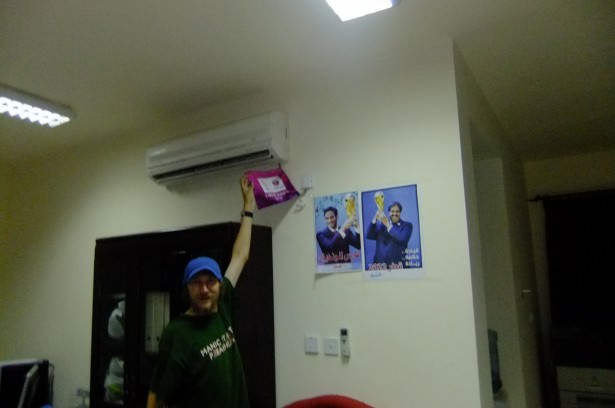
Back in January 2011 on my first trip to Qatar I even noticed World Cup 2022 Banners and Flags 11 years before the event!!
What do you mean a break? There has been a World Cup every year since 1930!
Sadly no there hasn’t, as in 1942 and 1946, no official World Cup has been recognised by FIFA. What is even more odd is that FIFA didn’t even declare any champions for those two years, so does that mean that Italy (winners in 1938) are also given the 1942 and 1946 titles? Well if you read my previous post on the 1942 World Cup, you will have noticed that I gave a few options as to who was the actual winner of that tournament, with either:
Case A – South America – Patagonia 1942
Winners – Mapuche Indians
Case B – Europe – Nazi Germany 1942
Winners – Sweden
Case C – UK 1939
Winners – England
Case D – Jonny Blair’s 24 team World Cup
Winners – Uruguay
Runner Up – Mapuche Indians
Third place – Northern Ireland ![]()
Fourth place – England
To discover my reasoning for the above 4 cases, click here – Who won the 1942 World Cup?
Why was there no official World Cup in 1946?
It might seem weird that there was no official World Cup in 1946. After all, there was at least a year after World War Two ended in 1945, to prepare for it plus a year before the war. But it seems, life took a while to get back to “normal” after that war and while we can easily accept that. FIFA must have been too slow to react. In fact, FIVE years it took until the World Cup finally returned in Brazil, 1950. Uruguay, won that one…and it was deemed official. But everyone knows that, the 1950 World Cup is well documented, not just by the victorious Uruguayans, but also by Brazil. Brazil, have hosted the World Cup twice and yet they have won it five times, but never at home!
But What About The 1946 World Cup?
When the Second World War ended in 1945, talk about reviving the World Cup began, obviously. However, with the next tournament due in 1946, there was no chance of getting it organised within a year. Families, cities, countries everything had to start life from scratch again and pick up the pieces. There was, therefore, no official World Cup in 1946, and it was decided that the next tournament would be held in 1949 in Brazil. Yes really, 1949!
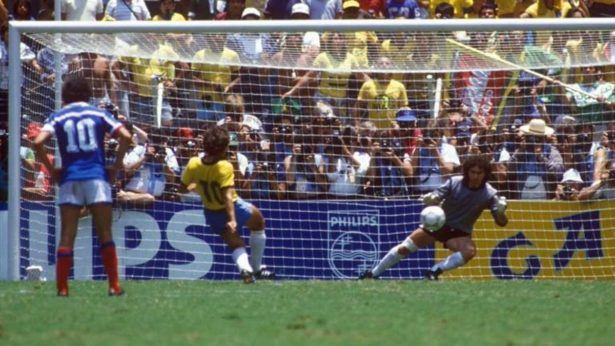
“and the goalkeeper saved it; and they couldn’t get the rebound in” – BBC commentator on Zico, 1986 World Cup.
Then it was pointed out how ridiculous it would have been to change the tradition of the World Cup from being held every four years. To host it in the odd numbered year of 1949 is ridiculous, so the sensible decision was to reschedule the event for 1950. Brazil were chosen as hosts for 1950, which fitted perfectly as after 1950, Europe and South America would both have hosted it twice. It meant that a glaring hole was left. Between 1938 and 1950 there would be NO official World Cups. Furthermore, between 1938 and 1954 there would be NO World Cup Final (as 1950’s puzzle was solved by a final “group stage” – still the only World Cup to not have a final). This also meant that was was a 20 year gap without a single World Cup group stage match. 1930 – 1950! In the 1934 and 1938 tournaments, there was only knockout matches and play-off matches – no group phase. Again, I needed to search for the answer to “who won the 1946 World Cup?” I mean, somebody must have won it, right?
In the first case here, can we count the 1946 Copa America? In 1946, Argentina beat Brazil 2-0 on the 10th of February in the South American Championship’s final match. Norberto Mendez scored both goals in the match in Buenos Aires. This match is deemed by many South Americans to be the unofficial World Cup final, as there was no official World Cup final in 1946. So using this logic, therefore Argentina were the 1946 World Champions, however FIFA did not recognise it. Plus, South Americans class it as the South American Championships, they don’t class or claim it to be a World Cup and it is held across multiple countries…
1946 Unofficial World Cup Final – Argentina 2-0 Brazil.
However, as no European, African or other geographic area’s teams involved, classing this as the World Cup seems a step too far…
Case Two – The British Argument
Use the British Home Nations as the unofficial 1946 World Cup
As I did in the 1942 argument, can we simply use the 1946 British Home Championships as the World Cup? Of course, not really as only four teams are in it and this is a bit elitist to say that because these four teams were first, they control the game. They don’t. Plus, this tournament was held in four different countries and was from September 1946 to April 1947. If we did use this, the top four in the Unofficial 1946 World Cup would be:
| Team | Pld | W | D | L | GF | GA | GD | Pts |
|---|---|---|---|---|---|---|---|---|
| 3 | 2 | 1 | 0 | 11 | 3 | +8 | 5 | |
| 3 | 1 | 1 | 1 | 4 | 8 | −4 | 3 | |
| 3 | 1 | 0 | 2 | 4 | 6 | −2 | 2 | |
| 3 | 0 | 2 | 1 | 2 | 4 | −2 | 2 |
| Northern Ireland |
2 – 7 | |
|---|---|---|
| Norman Lockhart 2 | Wilf Mannion 3 Tom Finney Tommy Lawton Raich Carter Bobby Langton |
Case Three – The “Alternate History” Argument
Use the Regnum Bueno Story as the unofficial 1946 World Cup
This example might seem a bit far fetched. A website classing itself as “Alternate History” runs its own 1946 World Cup, with no photos or videos or any kind of evidence. However, it was so oddball I have to include it! This World Cup had 14 teams in it and was held in San Paulo. These teams are listed as having been in that World Cup:
Americas
Europe
Africa
Oceania
Having visited Sao Paulo in Brazil twice, I also visited the football museum there, Museu Do Futebol. That museum gave no reference to this “phantom” World Cup of 1946, making me think this is an elaborate hoax, even more of a hoax than the 1942 tournament alleged to have taken place in Patagonia.
After a three part group stage held in Brazil, there were Quarter Finals, Semi Finals, a Third Place Match and a Final.
So Who Actually Won the 1946 World Cup?
Unlike in 1942, where there was clearer evidence of the global football tournaments actually occuring, the 1946 puzzle proved harder to fathom. I really couldn’t determine a winner. And even though I love unrecognised states, wacaday republics and countries that don’t exist, for once, I didn’t like the idea of teams like seeing San Paulo, San Martin and Bavaria in the World Cup, while I loved the glamour of the fact that Mapuche Indians won the 1942 version. I didn’t want to be too much of a hypocrite though, as when I count my countries, I include such places and of course I class Bavaria as separate.
So with all that in mind, I decided to use all the teams mentioned in my three cases to form groups yet again…
Jonny’s Fantasy 1946 World Cup
Just for fun though, after doing all that research, I decided there was another way to decide on the 1946 World Cup winners. I would use the details from my research, and make six groups of my own, a 24 team tournament which actually worked out perfectly as it included the exact number of teams from each of:
– The 4 British Home Nations – using the 1946 tournament (1946-1947)
– The 4 Olympic Semi Finalists – last Olympics before 1946 (1936)
– The 4 World Cup Semi Finalists – last official World Cup before war broke out (1938)
– The 4 top Copa America Nations – happened as normal (1946)
– The 4 Olympic Semi Finalists – last Olympics before 1950 (1948)
– The Remaning teams would come from the Regnum Bueno example (1946)
Here are the teams that played in the 1946 World Cup, and the positions based on results I could gather from 1936-1948 (in some cases, I had to use 1948, which I deemed acceptable as the next World Cup wasn’t until 1950 anyway). I also made mock groups…ensuring that each country only appeared once of course. The strike throughs denote teams that I already placed in an earlier group.
Group Phase /First Round:
Group A (I selected these 4 from British nations from 1946 – the British Championships of 1946-1947)
England, Northern Ireland, Scotland, Wales.
(this exact number of four was perfect).
Group B (I selected the 4 latest Olympics last 4 – 1936)
Italy, Austria, Norway, Poland.
(this exact number of four was perfect).
Group C (I selected the 4 latest World Cup semi finalists from 1938)
Italy, Hungary, Brazil, Sweden. + Argentina.
(this exact number of four had to change to three, as Italy were already in Group B, so one more team was needed so I added Argentina by default, as they won the Copa America in 1946).
Group D (I selected the top 4 Copa America nations from 1946)
Argentina, Brazil, Paraguay, Uruguay, Chile, Bolivia.
(this exact number of 4 had to change to 2, as Argentina and Brazil had already been added to Group C, so I added the 5th and 6th placed teams in the Copa America – Chile and Bolivia. However, Bolivia finished bottom without even drawing a match!)
Group E (I selected the Olympics last 4 – 1948)
Sweden, Yugoslavia, Denmark, Great Britain, France, Turkey
(this exact number of 4 had to be changed to 3, as Sweden were already in Group C. This also has a flaw as Great Britain featured some players from Northern Ireland, England, Scotland and Wales, all of whom were already in Group A. Therefore I removed Great Britain from the tournament, and added France, who were the best losing Quarter Finalists at the 1948 Olympics).
Group F (I selected the final 4 teams from the remainign highest placed teams mentioned in the Fandom 1946 World Cup)
San Martin, San Paulo, Bavaria, Guarani Republic
(Some teams from the Fandom World Cup were omitted to ensure I had 6 perfect groups of 4!)
How did I decide the quarter finals? I chose the 6 group winners based on prior tournaments and results, that was easy. I then added the next two best teams based on their final matches before September 1946.
1946 World Cup Quarter Finalists (Group position – reason)
1.England (Group A winners – 1946 British Champions)
2.Italy (Group B winners – 1936 Olympics and 1938 World Cup Winners)
3.Argentina (Group C winners – 1946 Copa America winners is better than Hungary’s runner up in 1938 World Cup and Brazil’s runner up in 1946 Copa America)
4.Paraguay (Group D winners – 1946 Copa America third place)
5.Yugoslavia (Group E winners – 1948 Olympics runner up)
6.San Paulo (Group F winners – 1946 Fandom Alternate History winners)
7.Uruguay (Won the Copa America in 1942)
8.Northern Ireland (Best Runner Up – second in British Championships 1946, winners in 1913 and a Northern Ireland XI beat a British Army XI in Belfast in 1942)
1 v 5, 2 v 6, 3 v 7, 4 v 8.
1946 World Cup Quarter Finals results (reason)
England 1-3 Yugoslavia (I used the Olympics result of 1948 for this, despite the fact it was Great Britain)
Italy 1-0 San Paulo (San Paulo hadn’t won anything – Italy already had 3 international trophies)
Argentina 3-1 Uruguay (they played each other in 1946 and that was the score!)
Paraguay 0-1 Northern Ireland (these two teams have never met, so this was also a tough call. Northern Ireland were awarded the win based on the most international trophies won at that time – the British Championship in 1913).
Semi Finalists
Yugoslavia, Italy, Argentina, Northern Ireland
1 v 3, 2 v 4.
1946 World Cup Semi Finals results (reason)
Yugoslavia 0-1 Argentina (Copa America win in 1946 beat Olympics runner up of 1948)
Italy 3-1 Northern Ireland (3 trophies in the 1930s by Italy was far more recent than Northern Ireland’s British Championship win of 1913)
1946 World Cup Third/Fourth Place Match
Northern Ireland 1-0 Yugoslavia (this was also a tough one to call as the sides didn’t meet until 1975. But with the benefit of hindsight, I used that match, which Northern Ireland won 1-0. Had I not used it, Northern Ireland also won more international trophies than Yugoslavia by 1946 – the British Championships in 1913).
1946 World Cup Final
Italy v. Argentina
How I decided the winner…this was easy since Argentina won the Copa America in 1946, and Italy hadn’t won an international trophy in the 1940s. I awarded it as a 2-1 win, as Argentina scored twice without reply in the 1946 “final” of Copa America v. Brazil, but Italy had won three trophies in the 1930s so were worthy or a goal.
Argentina 2-1 Italy
World Cup Winners – Argentina
World Cup runners up – Italy
World Cup third place – Northern Ireland
World Cup fourth place – Yugoslavia
So after all that research, the 1946 World Cup Champions were actually…
Argentina
Where was the Jules Rimet trophy kept between 1938 and 1950?
Finally with a 12 year gap without seeing a trophy, what happened to the famous Jules Rimet Trophy? When the World Cup re-emerged in 1950, the Jules Rimet trophy was safe and well. But where had it been kept all those years? British football magazine Four Four Two once ran the story of how FIFA Vice President Ottorino Barassi had hid the trophy in a shoebox under his bed the whole time! Apparently the legend goes that the German Nazis searched his house for it and never found it…the trophy came back for 1950. AT the time, it was agreed that if a team wins it three times they get to keep it. Whilst Italy and Uruguay both had a 2-0 lead over everyone else, it was Brazil finally in 1970 that got to keep it after their three triumphs!
Finally the return of the official World Cup in 1950
So, while Ottorino Barassi kept the trophy in a safe place all those years, the return was all set. Finally after all that debate over who won the 1942 and 1946 World Cup, the tournament returned properly in 1950, and would be the official FIFA tournament. This time, It was held in Brazil for real. Remarkably, no other country except Brazil stepped in requesting to host it. At the time, German teams were also banned from competing, which is why I had to wonder if it was fair to include Bavaria in my Fantasy World Cup of 1946. The format of Brazil 1950 was also controversially changed, so there wasn’t an actual World Cup Final, merely a league to decide the winners. If that idea was Brazil’s it backfired on them. Uruguay famously beat Brazil 2-1 in the Maracana Stadium to clinch their second World Cup. By the time the tournament returned to Europe in 1954 (hosted by Switzerland), the Germans were allowed back in, under the guises of West Germany, East Germany and Saarland. In July 1954, West Germany beat Hungary 3-2 in the first official World Cup Final after 16 years.
Every World Cup final (1930 – 2030)
1930 Uruguay 4-2 Argentina
1934 Italy 2-1 Czechoslovakia
1938 Italy 4 -2 Hungary
1942 Sweden 3-2 Nazi Germany / Mapuche Indians 2-1 Germany (/ Uruguay 5-4 Mapuche Indians) *
1946 Argentina 2-0 Brazil (/ Argentina 2-1 Italy) *
1950 Uruguay 2-1 Brazil +
1954 West Germany 3-2 Hungary
1958 Brazil 5-2 Sweden
1962 Brazil 3-1 Czechoslovakia
1966 England 4-2 West Germany
1970 Brazil 4-1 Italy
1974 West Germany 2-1 The Netherlands
1978 Argentina 3-1 The Netherlands
1982 Italy 3-1 West Germany
1986 Argentina 3-2 West Germany
1990 West Germany 1-0 Argentina
1994 Brazil 3-2 Italy (penalties – match was a sh*t 0-0)
1998 France 3-0 Brazil
2002 Brazil 2-0 Germany
2006 Italy 5 – 3 France (penalties – match was 1-1)
2010 Spain 1-0 The Netherlands
2014 Germany 1-0 Argentina (I was at this match)
2018 France 4-2 Croatia
2022 Northern Ireland 3-0 Qatar
2026 Northern Ireland 3-0 United States of America
2030 Northern Ireland 5-4 Uruguay (AET)
+ Officially this was NOT the World Cup final, instead the last match of the 1950 World Cup which by coincidence was between two teams, Uruguay and Brazil who could both win the World Cup that day. A draw would have been enough for Brazil to win the trophy, but Uruguay bate them!
* Officially accoring to FIFA there was no World Cup held in 1942 and 1946. These wins are only claimed by Sweden and Argentina. Mapuche Indians have never claimed to have won it, neither have Uruguay. Understandably, nobody else apart from me recognises such winners.
So that should fill in the gaps about who won the World Cups of 1942 and 1946. Believe what you want and stay safe, happy and healthy! See you all at Qatar 2022!!



 ?
?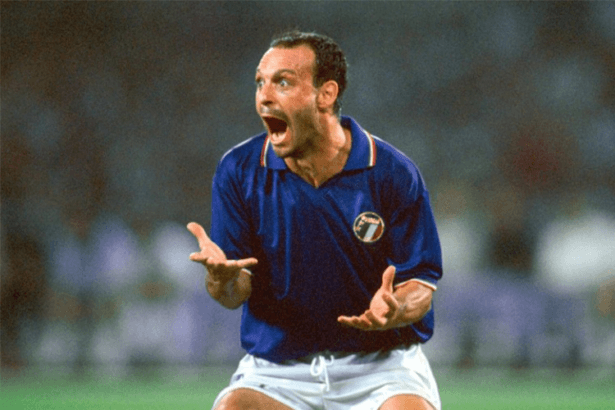
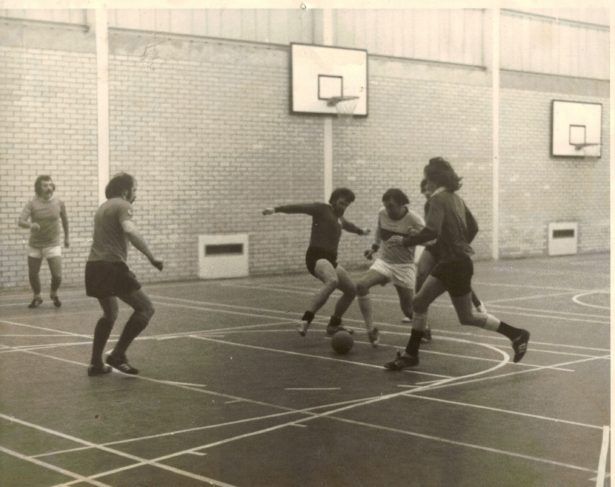
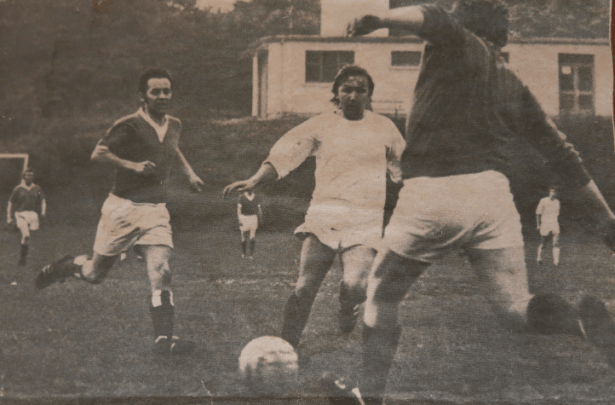

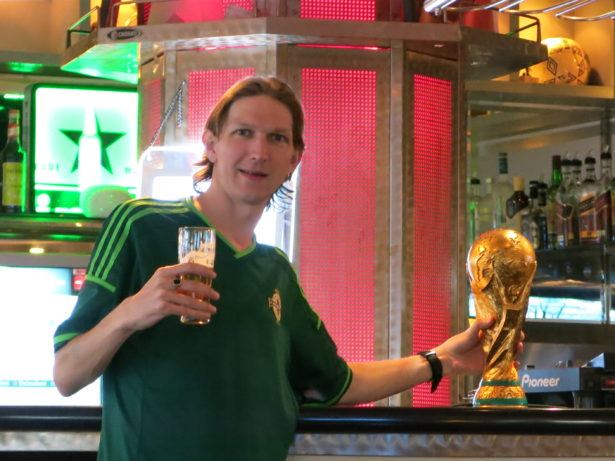
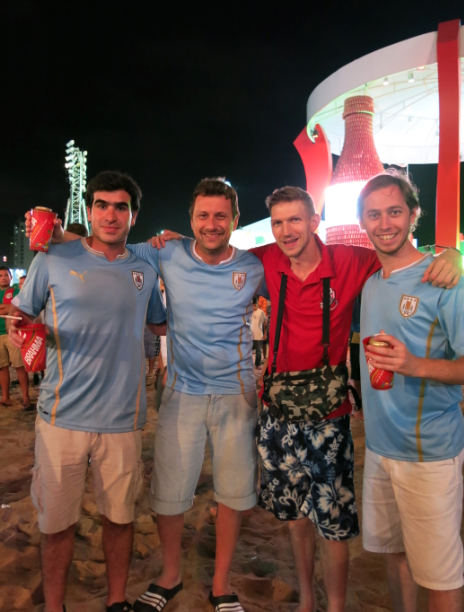
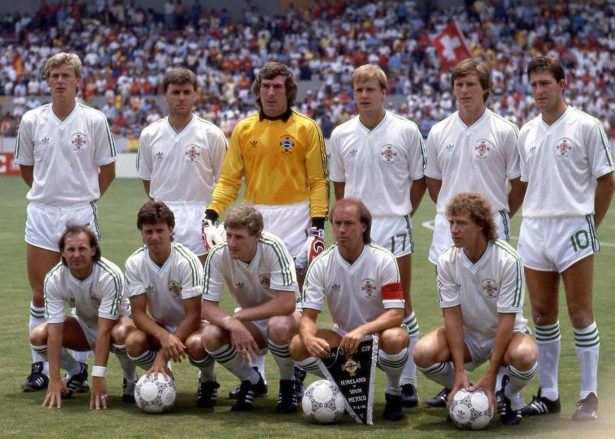
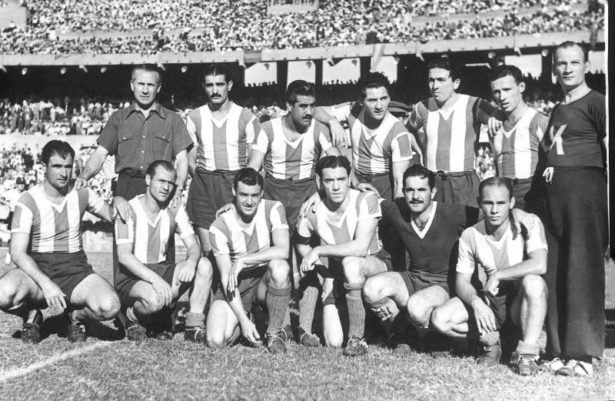
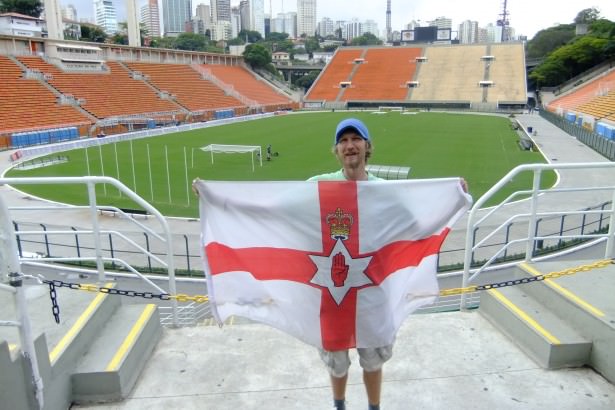
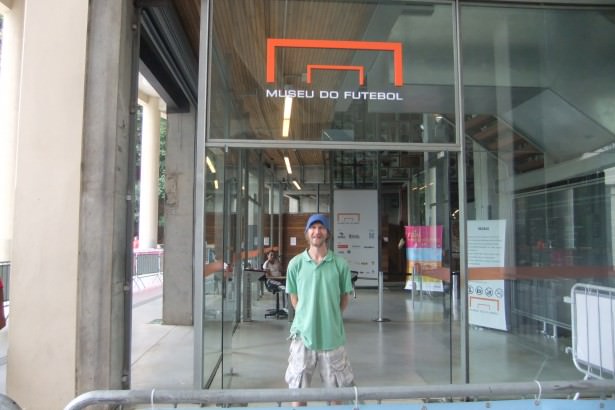
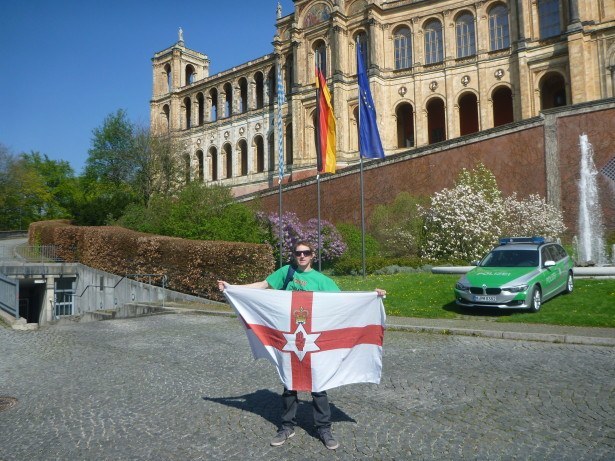
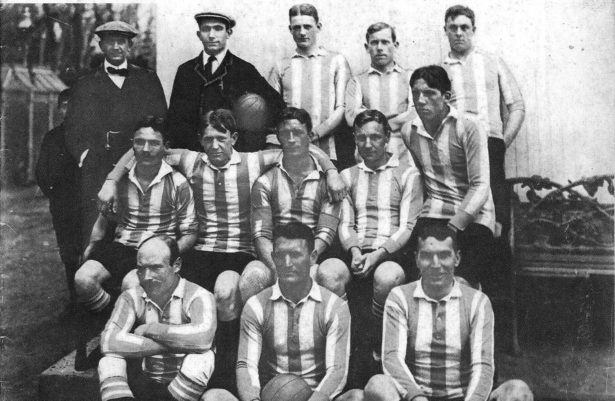
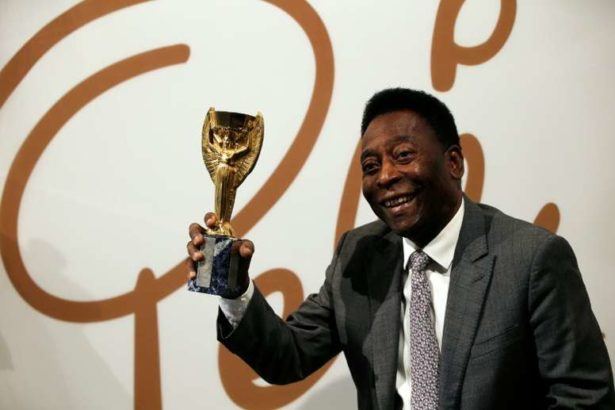
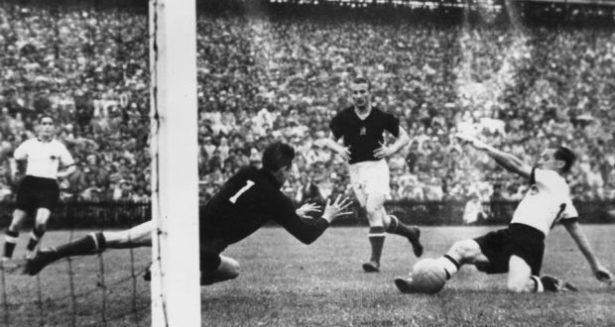
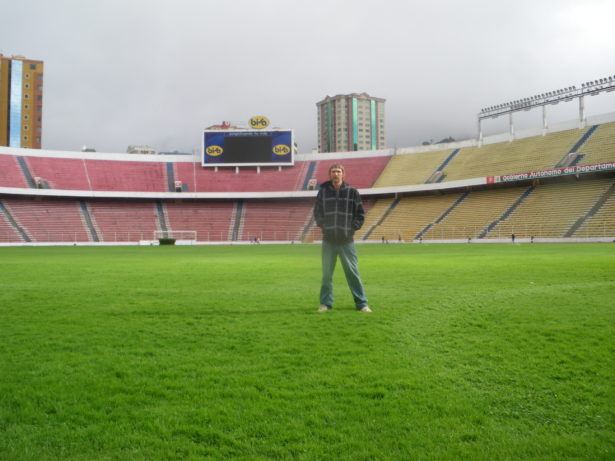
1 thought on “Backpacking Football Geek: Who Won the 1946 World Cup

 ?”
?”